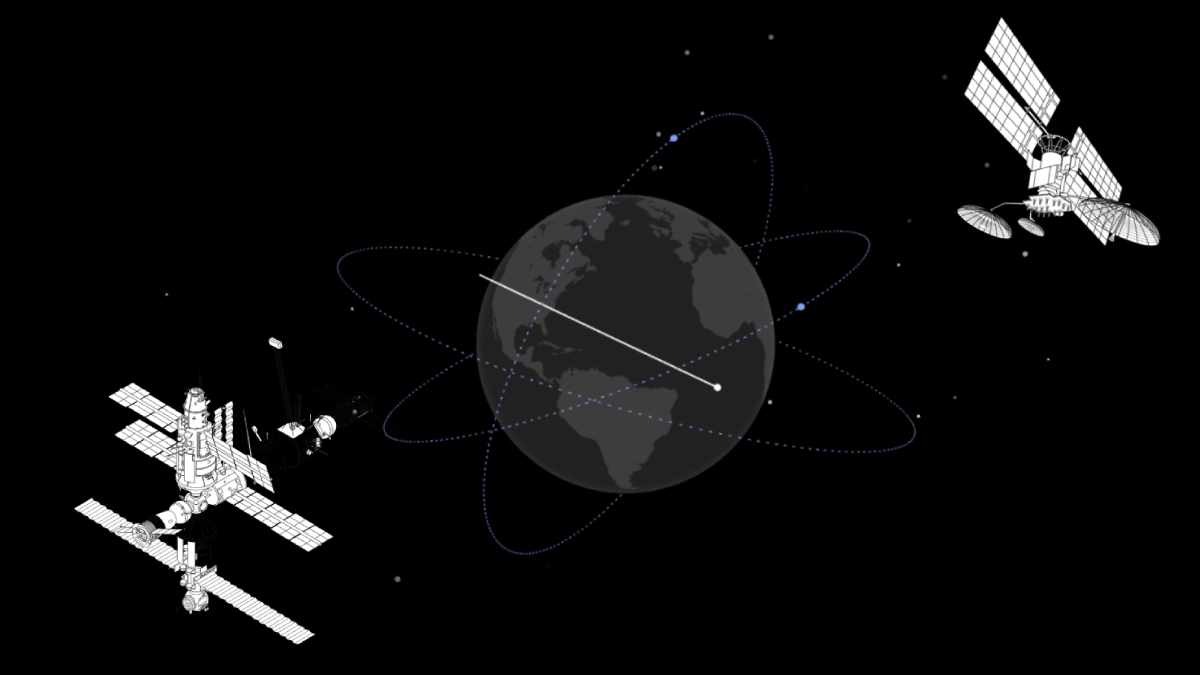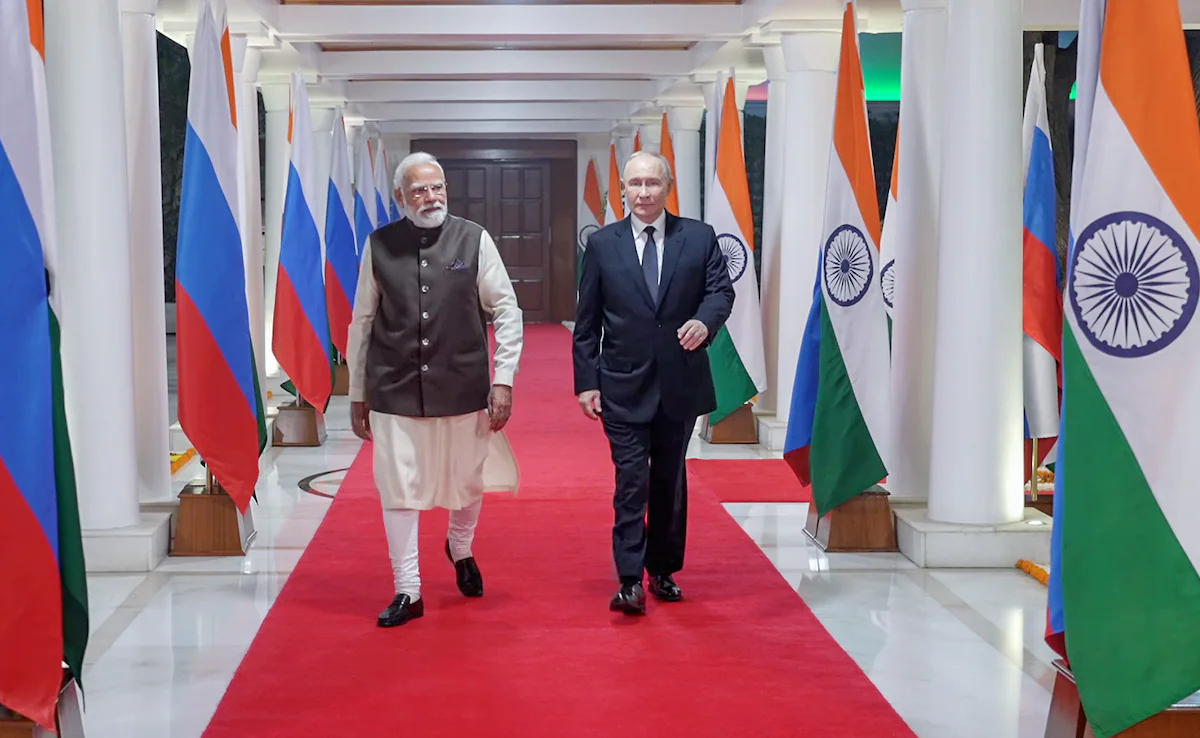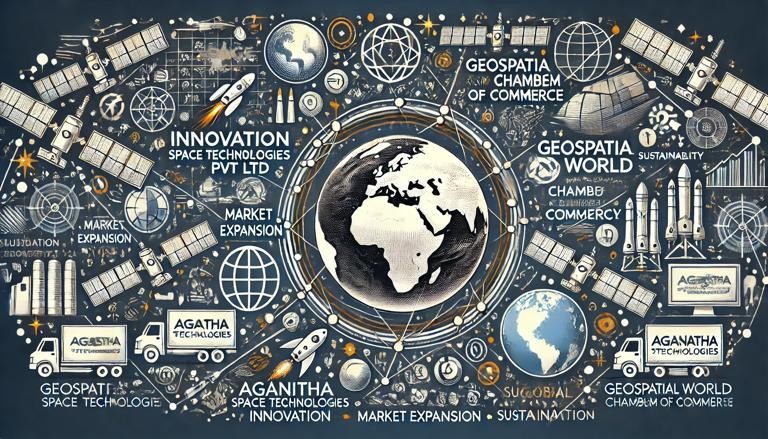The Geospatial Industry plays a pivotal role in empowering governments and private sectors globally. It contributes to cost savings in logistics, offers improved decision-making tools for urban governance, enhances the efficiency of last-mile deliveries in eCommerce, and develops advanced monitoring tools for infrastructure projects. The impact of the Geospatial industry extends to a substantial portion of the GDP.
In an extensive interview, Commerce and Industry Minister Piyush Goyal shared his strong conviction about India progressing towards being a developed nation by 2047. Pointing out the monumental transformation India has experienced in governance, economic stability, and social welfare under the leadership of Prime Minister Narendra Modi, Minister Goyal affirmed that every section of society would rise as the country grows.
The minister also declared that India’s exports of goods and services are expected to hit the $2 trillion mark by 2030, placing India on a solid foundation for growth and prosperity. These insights form a part of the minister’s broader vision of a resilient, prosperous, and inclusive India.
Here are a few highlights from the Interim Budget
The infrastructure sector: The capital expenditure for infrastructure has experienced a notable 11.1% increase, reaching ₹11.11 lakh crore, equivalent to 3.4% of the GDP, in line with market predictions. The allocated amount, constituting 3.4% of the GDP, meets the anticipated figures. Finance Minister Sitharaman advised against anticipating new announcements, clarifying that the complete FY25 budget will be presented post the formation of the new government.
Railway Corridor Investment: The announcement in the Interim Budget for 2024-25 regarding the implementation of three Economic Railway Corridors identified under the PM GatiShakti for multi-modal connectivity marks a significant stride. These corridors include (i) energy, mineral, and cement corridors, (ii) port connectivity corridors, and (iii) high traffic density corridors. This initiative is a substantial boost towards enhancing logistics efficiency and lowering the logistics costs associated with rail transportation.
The plan aims to alleviate congestion on high-density rail routes and promote modal shifts from road to rail and coastal shipping. By doing so, it not only contributes to logistical decongestion but also actively works towards reducing the carbon footprint in the logistics sector. This strategic move aligns with broader sustainability goals and emphasises the importance of a more environmentally friendly and efficient transportation system.
Indian Space Sector Receives a Boost with a ₹500 Crore: The interim budget for 2024 has been unveiled, featuring a substantial increase in the budget allocation for the Department of Space, amounting to INR 13,042.75 crore for FY 2024-25, as compared to last year’s allocation of INR 12,543.91 crore. This notable increment of INR 498.84 crore is expected to significantly bolster India’s Gaganyaan mission, facilitate cost-effective missions, and promote international collaborations.
The government’s focus on enhancing scientific research and development is evident in the increased budgetary allotment for the Department of Science & Technology, which now stands at INR 16,603.94 crore. This marks a noteworthy rise of INR 242 crore from the FY 2023-24 budget of INR 16,361 crore.
The allocation will be distributed among key departments under the Ministry of Science and Technology, with the Department of Science and Technology receiving INR 8,029.01 crore, the Department of Biotechnology getting INR 2,251.52 crore, and the Department of Scientific and Industrial Research securing INR 6,323.41 crore.
Agendra Kumar, Managing Director of Esri India, emphasises the budget’s focus on fostering innovation and embracing cutting-edge technologies to achieve the ambitious goal of ‘Viksit Bharat by 2047.’ He applauds the budget’s strategic move, including the allocation of a 1-lakh crore corpus through a 50-year interest-free loan to incentivise the private sector in research and development.
Satcom Industry Association-India (SIA-India), one of the GWCC parnters, has submitted ambitious budgetary demands to boost India’s space program, seeking substantial increases in the space budget to match global standards. The association emphasises the need for increased funding, financial incentives, interest rate subsidies, and collaborative frameworks to nurture innovation and support deep-tech space start-ups.
Industry expectations also include calls for expansion of GST exemption to satellites, launch vehicles, and ground equipment manufacturing, customs duty concessions for notified imports, clarity on FDI policy for the space sector, and capital subsidies on infrastructure investments to spur manufacturing capabilities and infrastructure advancement in India’s private space industry.
The past year has seen significant achievements by ISRO, with initiatives like technology transfer to the private sector, international cooperation agreements, and increased private investments shaping India’s space industry. The transformative Indian Space Policy 2023, welcoming Non-Government Entities into core space activities, and IN-SPACe’s 10-year strategy envisioning substantial growth highlight the evolving landscape of India’s space sector, with continued strategic government support deemed essential for the burgeoning private sector.
These highlights showcase a diverse range of initiatives and allocations aimed at fostering economic growth, innovation, and sustainability.






